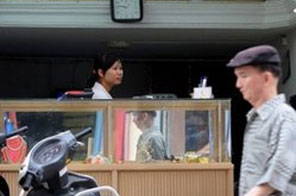Vietnam set for middle income status: World Bank
WASHINGTON: The World Bank said it had approved its biggest ever loan to Vietnam as it virtually endorsed the once war-ravaged Southeast Asian nation's impending elevation to middle income status.
The 500 million dollar loan was the first to the fast-growing communist country from the bank's low-interest lending arm, the International Bank for Reconstruction and Development (IBRD), which provides credit to mainly middle income nations.
Vietnam has set itself a 2010 target of embracing middle-income status.
Until now, World Bank support to Vietnam had come from the International Development Association (IDA), which provides interest free loans to the world's poorest countries.
The newly approved loan is aimed at supporting a program of public investment reforms in Vietnam, the Washington-based bank said in a statement.
"This is a significant milestone for Vietnam, a country which will have moved from the category of highly indebted country to middle income status in less than seven years," said World Bank Vice President for the East Asia and Pacific region Jim Adams.
The World Bank declared Vietnam IBRD-eligible in late 2007 but the Vietnamese government has requested a gradual transition to borrowing from the bank on IBRD-only terms.
It will continue to access IDA funds indefinitely.
The World Bank begins to provide IBRD lending when countries hit a per capita income of 1,025 dollars for two consecutive years, virtually endorsing them as middle income level economies.
International donors at a meeting in Hanoi earlier this month pledged a 33-percent increase in aid to Vietnam for next year of more than eight billion dollars.
Officials said the gathering may have been the last in its current form before the country of about 86 million people officially attains middle-income status.
The World Bank said its loan "is aimed at addressing" weaknesses in public investment processes highlighted during recent "macroeconomic turbulence."
It is the first of two single-tranche operations that will support the country's stimulus program in response to the economic crisis, the bank said.
Over the last two years, Vietnam has experienced a succession of shocks starting with massive capital inflows in 2007, a surge in commodity prices in 2008 and export declines as a result of the global economic crisis.
Stimulus measures adopted in late 2008 and supplemented in early 2009 contributed to strong growth, projected to be 5.2 percent this year, the bank said.
World Bank country director for Vietnam Victoria Kwakwa said the quality of Vietnams future growth would depend on reforms to beef up public investment processes.
The areas to be strengthened under the reform program include environmental screening of publicly funded infrastructure projects as well as strengthening public financial management and regulatory framework for private participation in infrastructure, the bank said.






